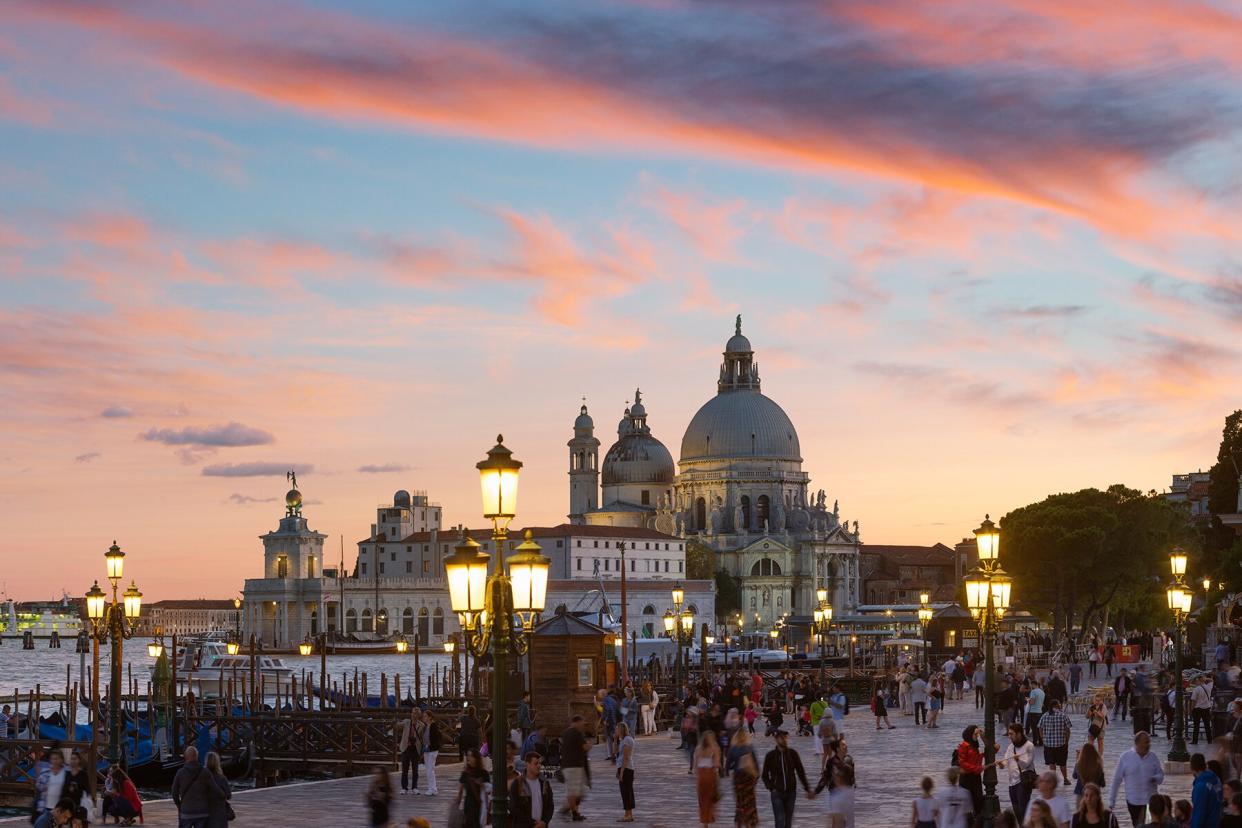Venice Postpones Tourist Tax Until 2023

Jon Hicks/GETTY IMAGES
Venice has postponed its decision to charge tourists a new fee to enter the canal city, according to reports, pushing it off until next year.
The fee, which was initially slated to go into effect this summer as a way to combat overtourism, now won't be implemented until the start of 2023, Euronews reported. The new tax is aimed at curbing the number of day visitors.
Residents, students, and commuters will be exempt from the fee. Overnight visitors who book a hotel stay will also be exempt as they already pay a €5 ($5.33) per night tax.
The new fee is expected to change depending on the season. In high season, tourists may have to pay as much as €10 ($10.66), while the fee will drop to €3 ($3.20) during less popular times.
The booking and payment system is now expected to go live on Jan. 16, 2023, according to Euronews, which cited the Venice town council.
A representative for the National Tourist Board did not immediately respond to a request for comment from Travel + Leisure.
Venice, which saw more than 80,000 tourists per day and about 25 million visitors per year before the COVID-19 pandemic, has been trying to combat overtourism for years. The city first started talking about a fee in 2019, but it was delayed, in part, due to the pandemic.
After the pandemic halted tourism, Venice saw a near immediate improvement as the city's famous canals started to clear up. Then last year, Italy declared the waterways around Venice a "national monument," and banned large cruise ships from the lagoon basin near St. Mark's Square and the Giudecca Canal. Small ships are still allowed to enter the Venice lagoon.
Venice's efforts to prevent overtourism earned it a reprieve from being included on the UNESCO World Heritage danger list.
Italy welcomes travelers from the United States, requiring them to either show proof they have been fully vaccinated within nine months or received a booster shot, show proof they have contracted COVID-19 and recovered within six months, or show proof of a negative COVID-19 test (either a PCR test taken within 72 hours of a trip or a rapid antigen test taken within 48 hours of a trip), according to the National Tourist Board.
Earlier this month, the country lifted its "Green Pass," no longer requiring visitors to show proof of vaccination to visit places like restaurants, bars, and museums.
Alison Fox is a contributing writer for Travel + Leisure. When she's not in New York City, she likes to spend her time at the beach or exploring new destinations and hopes to visit every country in the world. Follow her adventures on Instagram.

